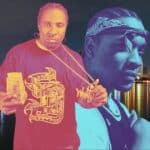Hip-hop music has become a global phenomenon that has transcended borders and cultures. Burkina Faso, a small landlocked country in West Africa, is no exception to this trend. Despite facing numerous challenges such as poverty and political instability, hip-hop music has thrived in Burkina Faso and has become an integral part of the country’s cultural identity.
The rise of hip-hop in Burkina Faso can be traced back to the early 2000s when local artists started incorporating elements of the genre into their music. Today, hip-hop has become one of the most popular music genres in the country, with artists such as Yeleen and Art Melody gaining international recognition for their unique sound and socially conscious lyrics. The genre has also become a platform for young people to express themselves and address social issues such as poverty, corruption, and political oppression.
Historical Context
Hip-hop culture emerged in Burkina Faso in the early 2000s when the country was experiencing a boom in the genre. The movement was initially organized with local hip-hop artists, and it became popular thanks to the arrival of an initial studio, Abazon, whose arranger was specialized in hip-hop productions.
Burkina Faso has a rich revolutionary history, which has influenced the country’s music and culture. The country’s first president, Thomas Sankara, was a Marxist revolutionary who sought to transform the country and reduce its dependence on foreign aid. Sankara’s government supported the development of local music and culture and promoted the use of indigenous languages.
However, Sankara was overthrown in a coup in 1987, and his successor, Blaise Compaoré, ruled the country for 27 years until he was ousted in a popular uprising in 2014. Compaoré’s regime was marked by corruption, repression, and human rights abuses, and his government censored the media and restricted freedom of expression.
The killing of journalist Norbert Zongo in 1998 sparked protests and calls for justice, which continued for many years. The Zongo case became a symbol of the struggle for justice and freedom in Burkina Faso and inspired many artists to speak out against corruption and injustice.
In 2015, there was an attempted coup in Burkina Faso, which was ultimately unsuccessful. The coup was led by members of the presidential guard, who were unhappy with the government’s decision to dissolve the unit. The coup was widely condemned by the international community, and the government was restored to power after a few days.
Despite the challenges faced by Burkina Faso, hip-hop culture continues to thrive in the country, and many artists use their music to address social and political issues. Hip-hop has become a powerful tool for expression and activism, and it has helped to shape the country’s cultural identity.
Hip-Hop Evolution in Burkina Faso
Hip-hop music has become a significant part of Burkina Faso’s music scene, with its roots dating back to the 1980s. The genre has evolved over the years, influenced by African American hip-hop, and integrated with traditional Burkinabe music.
Influence of African American Hip-Hop
African American hip-hop has had a significant influence on the development of hip-hop in Burkina Faso. The genre was introduced to the country in the 1980s, and since then, it has grown in popularity. Burkinabe hip-hop artists have been inspired by the music, fashion, and culture of African American hip-hop. They have used it as a platform to express their own experiences and struggles.
Integration of Traditional Music
Hip-hop in Burkina Faso has also been influenced by traditional Burkinabe music. Many hip-hop artists have integrated traditional instruments and rhythms into their music, creating a unique sound that blends modern and traditional elements. This integration has helped to preserve and promote Burkinabe culture, as well as introduce it to a wider audience.
Overall, hip-hop in Burkina Faso has become a significant part of the country’s national culture, with many artists using the genre to express their views on social and political issues. The genre has evolved over the years, influenced by African American hip-hop and integrated with traditional Burkinabe music.
Prominent Artists and Groups
Burkina Faso has a vibrant hip-hop scene with several prominent artists and groups. In this section, we will highlight some of the most influential figures in the country’s hip-hop culture.
Art Melody and Waga Hip Hop
Art Melody, also known as the “Yeleen” (the light), is a Burkinabe rapper who has gained international recognition for his socially conscious lyrics and unique blend of traditional African rhythms with modern hip-hop beats. He is a founding member of Waga Hip Hop, a collective of musicians and artists who have been instrumental in promoting hip-hop culture in Burkina Faso.
Waga Hip Hop, which was founded in 2002, organizes an annual hip-hop festival that attracts thousands of fans from across the country and beyond. The festival provides a platform for local artists to showcase their talents and also features international acts from other African countries and beyond.
Smockey and Le Balai Citoyen
Smockey, whose real name is Serge Bambara, is another influential Burkinabe rapper and activist. He is a co-founder of Le Balai Citoyen, a grassroots movement that played a key role in the fall of former President Blaise Compaore in 2014.
Le Balai Citoyen, which means “The Citizen’s Broom,” was formed in response to Compaore’s attempt to change the constitution to extend his 27-year rule. The movement, which is made up of musicians, artists, and activists, organized protests and other actions that eventually forced Compaore to resign.
Faso Kombat and Serge Bambara
Faso Kombat is a hip-hop group that was formed in 2004 by Serge Bambara, who is also known as Smockey. The group’s music is characterized by its socially conscious lyrics and its use of traditional African instruments such as the kora and the balafon.
Faso Kombat has released several albums and has collaborated with other Burkinabe artists as well as international acts such as Senegal’s Youssou N’Dour. The group’s music has been praised for its powerful messages of social justice and its ability to bring together people from different backgrounds and cultures.
In conclusion, Burkina Faso’s hip-hop scene is a vibrant and dynamic part of the country’s cultural landscape. Artists like Art Melody, Smockey, and Faso Kombat have used their music and their voices to promote social change and to inspire others to do the same. Through their work, they have helped to make Burkina Faso a leader in the African hip-hop movement.
Political Influence of Hip-Hop
Hip-hop has played a significant role in the political landscape of Burkina Faso. The genre has been used as a means of protest against government censorship and corruption, and has been a driving force behind the Balai Citoyen movement.
In 2014, the Balai Citoyen movement, which was founded by hip-hop artists, played a key role in the protests that led to the resignation of Burkina Faso’s President Compaoré. The movement’s name translates to “Citizen’s Broom,” and it symbolizes the sweeping away of corruption and injustice in the country.
Hip-hop artists in Burkina Faso have also faced censorship from the government. In 2018, rapper Smockey’s song “The People’s Justice” was banned by the government for its criticism of the judicial system. However, Smockey continued to perform the song at his concerts, and it became an anthem for the Balai Citoyen movement.
Hip-hop’s political influence in Burkina Faso extends beyond the country’s borders as well. The genre has been used as a means of protest in other African countries, including Egypt, Tunisia, and Senegal.
Overall, hip-hop in Burkina Faso has given a voice to the people, and has been a powerful tool for social and political change.
Hip-Hop Festivals and Venues
Burkina Faso has a vibrant hip-hop scene with a range of festivals and venues that host local and international artists. Here are some of the most notable festivals and venues in the country.
Waga Hip Hop Festival
The Waga Hip Hop Festival is a panafrican and international festival of urban cultures that takes place annually in Ouagadougou. It was first organized in 2001 with local hip-hop artists, but quickly gained international recognition, attracting artists from all over Africa and beyond. The festival features a range of events, including concerts, dance battles, graffiti exhibitions, and workshops. In recent years, the festival has also included film screenings and panel discussions on hip-hop culture.
French Cultural Center in Ouagadougou
The French Cultural Center in Ouagadougou is a hub for cultural events in the city, including hip-hop concerts and festivals. The center hosts a range of events throughout the year, including music, theater, dance, and film screenings. The center has a large auditorium and outdoor space that can accommodate large crowds. It is a popular venue for local and international artists.
Venues in Bobo Dioulasso
Bobo Dioulasso is the second-largest city in Burkina Faso and has a thriving hip-hop scene. There are several venues in the city that host hip-hop events, including concerts, dance battles, and workshops. The most popular venues include:
- Le Cenasa: This is a large sports complex that hosts a range of events, including hip-hop concerts and festivals.
- Le Centre Culturel Français: This is a cultural center that hosts a range of events, including hip-hop concerts and festivals.
- Le Bistro: This is a popular bar that hosts regular hip-hop events, including open mic nights and DJ battles.
Overall, Burkina Faso has a vibrant hip-hop scene with a range of festivals and venues that cater to local and international artists. The scene is supported by a network of promoters and organizers who are committed to promoting hip-hop culture in the country.
Hip-Hop and Urban Cultures
Hip-Hop is a cultural movement that emerged in the Bronx, New York City in the early 1970s. Since then, it has spread globally and has become a prominent part of urban cultures worldwide. In Burkina Faso, Hip-Hop has gained popularity among the Burkinabe youth, and it has become an essential part of the country’s urban cultures.
West African Hip Hop has a unique sound and style that blends traditional African rhythms with modern Hip-Hop. Burkina Faso’s Hip-Hop scene is no exception, and it has produced several talented MCs who have gained recognition both locally and internationally. The country’s Hip-Hop artists use their music to address social and political issues affecting their communities, making their music relevant and relatable to their audiences.
Burkinabe youth have embraced Hip-Hop as a means of self-expression, and it has become a platform for them to voice their concerns and aspirations. Hip-Hop has also become a tool for social change, with artists using their music to advocate for human rights, democracy, and social justice.
In conclusion, Hip-Hop has become an integral part of Burkina Faso’s urban cultures, and it has provided a platform for the country’s youth to express themselves and address social and political issues affecting their communities. The country’s Hip-Hop scene continues to grow, and it has the potential to produce more talented MCs who can use their music to effect positive change in their society.
Media Coverage and International Recognition
Hip-hop in Burkina Faso has gained significant media coverage and international recognition in recent years. The genre has become a powerful tool for social and political commentary, and the country’s artists have been able to use it to voice their opinions on various issues affecting their communities.
One of the media outlets that has extensively covered Burkina Faso’s hip-hop scene is Afrique Magazine. The publication has featured interviews with various artists and highlighted the impact of the genre on the country’s youth culture. Radio France Internationale has also provided coverage of the country’s hip-hop scene, showcasing the work of local artists to an international audience.
Burkina Faso’s hip-hop scene has also gained recognition from international artists. In 2019, American rapper J. Cole visited the country and collaborated with local artists on a song titled “The Lion King on Ice.” This collaboration helped to further elevate the country’s hip-hop scene on the international stage.
The Burkinabe diaspora has also played a significant role in promoting the country’s hip-hop scene. Many artists have been able to gain exposure through performances and collaborations with members of the diaspora living in other countries. This has helped to create a global network of artists and fans who are passionate about the genre and its potential to effect change.
Overall, Burkina Faso’s hip-hop scene has become a powerful force in the country’s cultural and political landscape. With continued media coverage and international recognition, the genre is poised to become an even more significant influence in the years to come.
Musical Styles and Influences
Burkina Faso’s hip-hop scene is a melting pot of various musical styles and influences, which have contributed to its unique sound. The country’s rich musical heritage, coupled with the influence of international genres, has resulted in a diverse range of sounds and rhythms.
Influence of Pop, Reggae, and Jazz
Pop, reggae, and jazz have all had a significant impact on Burkina Faso’s hip-hop scene. Pop music, with its catchy melodies and upbeat rhythms, has influenced the production of many hip-hop tracks in the country. Reggae, with its socially conscious lyrics and laid-back beats, has also played a role in shaping the country’s hip-hop sound. Jazz, with its improvisational nature and complex harmonies, has been incorporated into the music of many of Burkina Faso’s hip-hop artists.
Integration of Folk and Rock
Burkina Faso’s hip-hop scene has also integrated elements of folk and rock music into its sound. Folk music, with its emphasis on storytelling and traditional rhythms, has been incorporated into the lyrics and beats of many hip-hop tracks. Rock music, with its heavy guitar riffs and driving rhythms, has also been a source of inspiration for many of the country’s hip-hop artists.
In summary, Burkina Faso’s hip-hop scene is a vibrant and diverse reflection of the country’s musical heritage and its place in the wider West African and continental music scene. With its unique blend of styles and influences, the country’s hip-hop artists continue to push the boundaries of what is possible in hip-hop music and dance.
Frequently Asked Questions
How has hip hop influenced music in Burkina Faso?
Hip hop has had a significant impact on the music scene in Burkina Faso since its introduction in the early 2000s. The genre has brought a fresh perspective to traditional African rhythms and has allowed local artists to express themselves in new and exciting ways. Hip hop has also influenced other music genres in Burkina Faso, such as reggae and zouglou.
Who are some popular hip hop artists from Burkina Faso?
Some of the most popular hip hop artists from Burkina Faso include Smarty, Art Melody, Joey le Soldat, and Imilo Lechanceux. These artists have gained recognition both nationally and internationally and have contributed significantly to the growth of hip hop in Burkina Faso.
What role has hip hop played in Burkina Faso’s cultural identity?
Hip hop has played a significant role in shaping Burkina Faso’s cultural identity. The genre has provided a platform for young people to express themselves and address social and political issues. Hip hop has also helped to promote cultural diversity and has encouraged the preservation of traditional African values.
How has hip hop evolved in Burkina Faso over the years?
Hip hop in Burkina Faso has evolved significantly over the years. The genre has become more diverse, with artists experimenting with different styles and incorporating various musical elements. Hip hop has also become more accessible, with the emergence of new technologies and social media platforms.
What challenges have hip hop artists faced in Burkina Faso?
Hip hop artists in Burkina Faso have faced several challenges, including limited access to resources, lack of recognition, and censorship. The genre has also been associated with negative stereotypes, which has made it difficult for artists to gain mainstream acceptance.
How has hip hop impacted youth culture in Burkina Faso?
Hip hop has had a significant impact on youth culture in Burkina Faso. The genre has provided a platform for young people to express themselves and address social and political issues. Hip hop has also helped to promote cultural diversity and has encouraged young people to embrace their African heritage.


